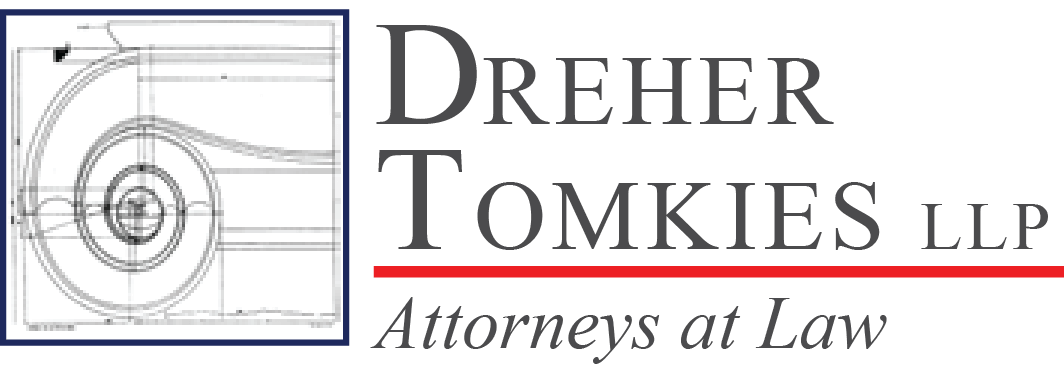

House Bill 209, a bill aimed at further restricting the payday lending industry, was introduced in the Ohio House of Representatives on June 3. This bill, introduced by Representative Matt Lundy (D-Elyria) and co-sponsored by Representatives Foley, Murray, Hagan, Phillips, Skindell, Stewart, Harris, Fende, Newcomb, Okey, Celeste and Harwood, is designed to close so-called “loopholes” that were allegedly not addressed by previous attempts to regulate payday lending.
This bill was introduced exactly one year after the Short Term Loan Act, another payday lending bill capping interest rates at 28 percent, was signed into law. Because the Short Term Loan Act allowed lenders to choose whether or not to operate under the Act, payday lenders seeking to stay in business declined to conduct business under the Act and began operating under the Small Loan Act and Mortgage Loan Act. The bill seeks to impose the interest and fee restrictions contained in the Short Term Loan Act on the lenders who opted to make loans under these other laws.
If signed into law, the new bill, which includes amendments to the Small Loan Act, Mortgage Loan Act, Check Cashing Act, Consumer Sales Practices Act and Civil Interest statute would do the following:
- Impose an interest rate cap of 28 percent, as calculated in compliance with the Truth in Lending Act, on Small Loan Act and Mortgage Loan Act loans of $1,000 dollars or less unless (i) the term of the loan is greater than three months or (ii) the loan is repayable in three or more monthly installments of substantially equal amounts.
- Eliminate check cashing fees on checks and money orders disbursed to fund loans by (i) prohibiting check cashing licensees from charging a fee for cashing a proceeds check or money order disbursed to fund a loan made by the check cashing licensee or an affiliate of the check cashing licensee and (ii) prohibiting Small Loan Act or Mortgage Loan Act lenders from (a) receiving a fee for cashing a proceeds check or money order disbursed to fund a loan made by the lender, (b) requiring a borrower to cash a proceeds check or money order disbursed to fund a loan made by the lender at the place of the business of the lender, an affiliate of the lender or any specified third party or (c) seeking or obtaining directly or indirectly compensation from any affiliate or third party that provides check cashing services to cash a proceeds check or money order disbursed to fund a loan made by the lender.
- Prohibit Small Loan Act and Mortgage Loan Act lenders from conducting the business of making loans within any office, room or place of business in which any other business is solicited or engaged in including, inter alia, a check cashing business or credit services organization, if the division finds, after hearing, that the other business is of such a nature as it tends to conceal evasion of Ohio law.
- Forbid Small Loan Act and Mortgage Loan Act lenders not located in Ohio from making loans to Ohio borrowers from an office not located in Ohio.
- Include provisions prohibiting the use of “unfair, deceptive or unconscionable means to collect or attempt to collect any claim.” Such provisions prohibit:
- The collection of or the attempt to collect any interest or other charge, fee, or expense incidental to the principal obligation unless such interest or incidental fee, charge or expense is expressly authorized by the agreement creating the obligation and by law.
- Any communication with a consumer whenever it is known that the consumer is represented by an attorney and the attorney’s name and address are known, or could be easily ascertained, unless the attorney fails to answer correspondence, return telephone calls or discuss the obligation in question, or unless the attorney consents to direct communication with the consumer.
- Placing a telephone call or otherwise communicating by telephone with a consumer or third party, at any place, including a place of employment, falsely stating that the call is urgent or an emergency.
- Using profane or obscene language or language that is intended to unreasonably abuse the listener or reader.
- Placing telephone calls without disclosure of the caller’s identity and with the intent to annoy, harass or threaten any person at the number called.
- Causing expense to any person in the form of long distance telephone tolls, text messaging fees or other charges incurred by a form of communication, by concealment of the true purpose of the communication.
- Causing a telephone to ring or engaging any person in telephone conversation repeatedly or continuously, or at unusual times, or at times known to be inconvenient, with the intent to annoy, abuse, oppress or threaten any person at the called number.
Provisions similar to (i), (ii), (iv), (v), (vi) and (vii) are contained in the federal Fair Debt Collection Practices Act.
- Subject loans of $1,000 or less made pursuant to the Small Loan Act or Mortgage Loan Act to the Consumer Sales Practices Act. This means that, pursuant to the Consumer Sales Practices Act, individuals will have the ability to assert private causes of action for violations of these Acts and the Attorney General will have the power to investigate and initiate civil or criminal actions for violations of these Acts.
- Repeal the provision under the interest statute allowing parties to agree to pay any rate of interest when the instrument is payable on demand or in one installment and is not secured by household furnishings or other goods used for personal, family or household purposes
Although this bill would appear to prohibit cashing, for a fee, checks or money orders issued as payment of proceeds of a loan by a licensed lender or its affiliate, and while it would also appear to impact out of state lenders who presently obtain licenses or certificates of registration under the Small Loan or Mortgage Loan Acts, the bill does not foreclose a number of other options available to former payday lenders to engage in business in Ohio. If you have any questions, or would like a copy of the bill, please do not hesitate to contact us.
- Elizabeth Anstaett

